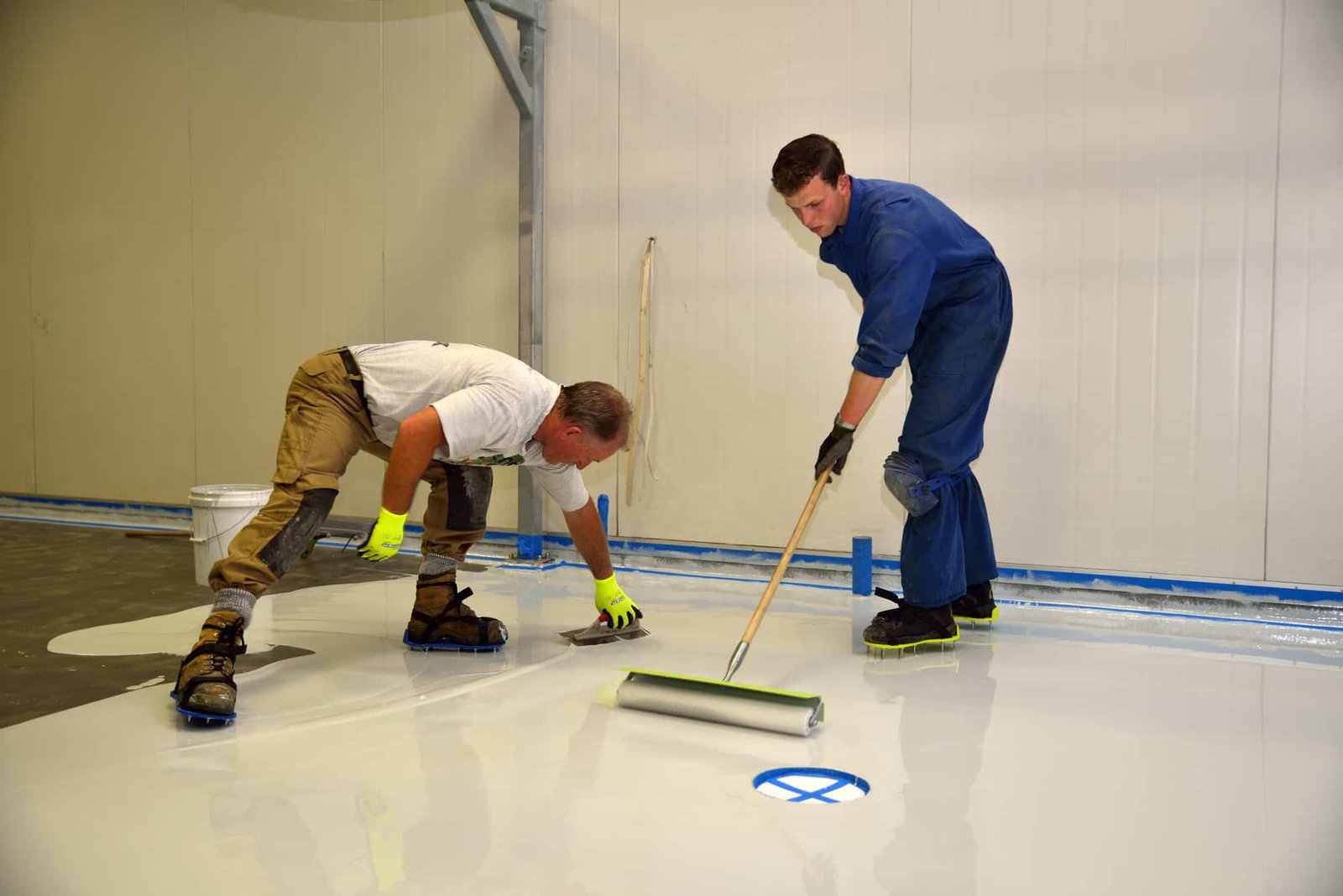When it comes to durable and aesthetically pleasing flooring options, Epoxy flooring stands out as a top choice for both residential and commercial spaces. With its unique combination of strength, versatility, and easy maintenance, epoxy has become increasingly popular. In this blog, we’ll explore what epoxy flooring is, its benefits, its application process, and the best uses for it.
What is Epoxy Flooring?
Epoxy flooring is a type of flooring that consists of a mixture of resin and hardener, which, when combined, create a durable and resilient surface. This flooring system is often applied over concrete floors, creating a seamless and glossy finish that can withstand heavy foot traffic and various environmental conditions.
Benefits of Epoxy Flooring
1. Durability
One of the most significant advantages of epoxy flooring is its exceptional durability. It can withstand heavy loads, making it ideal for warehouses, factories, and even garages. The tough surface is resistant to impacts, abrasions, and chemical spills.
2. Easy Maintenance
Cleaning epoxy floors is a breeze. With a smooth and non-porous surface, dirt and grime can be easily wiped away. This low maintenance requirement makes it a practical choice for busy environments.
3. Aesthetic Appeal
Epoxy flooring comes in a wide range of colors and finishes, allowing you to customize the look of your space. From sleek and modern to vibrant and decorative, there’s an epoxy solution for every design preference.
4. Cost-Effectiveness
While the initial investment might seem higher than some other flooring options, the long lifespan and minimal maintenance of epoxy flooring make it a cost-effective solution in the long run. It’s an investment that pays off through durability and longevity.
5. Safety Features
Epoxy floors can be enhanced with anti-slip additives, making them a safe choice for areas that may be prone to spills or wet conditions. This feature is particularly important in commercial kitchens, warehouses, and industrial settings.
The Application Process
1. Preparation
The first step in applying epoxy flooring is preparing the surface. This involves cleaning the concrete floor to remove any dirt, grease, or previous coatings. In some cases, the surface may need to be ground or etched to ensure proper adhesion.
2. Mixing the Epoxy
Once the floor is prepared, the resin and hardener are mixed according to the manufacturer’s instructions. This mixture must be applied within a specific time frame, known as the pot life, to ensure optimal results.
3. Application
The mixed epoxy is then applied to the floor using rollers or squeegees. Depending on the desired finish, multiple coats may be necessary. Each layer must cure properly before applying the next.
4. Finishing Touches
After the final coat has cured, any additional treatments, such as sealers or anti-slip additives, can be applied. This is also the stage where decorative elements, like colored flakes or metallic finishes, can be added for visual appeal.
5. Curing Time
The curing time for epoxy flooring can vary based on environmental conditions, but typically it takes about 24 to 72 hours before the floor can be used. It’s essential to follow the manufacturer’s guidelines during this phase.
Best Uses for Epoxy Flooring
1. Garages
Epoxy flooring is a popular choice for garages due to its resistance to oil spills and stains. It provides a clean, professional look that enhances the overall appearance of the space.
2. Commercial Spaces
Retail stores, restaurants, and offices benefit from the durability and easy maintenance of epoxy floors. The ability to customize the design allows businesses to create a unique brand identity.
3. Industrial Facilities
Manufacturing plants and warehouses often choose epoxy flooring for its strength and ability to withstand heavy machinery. The safety features can also protect employees from slips and falls.
4. Basements
For homeowners looking to finish their basements, epoxy flooring offers a moisture-resistant option that can help prevent mold growth while providing a stylish finish.
5. Healthcare Facilities
Epoxy is widely used in hospitals and clinics due to its hygienic properties. The seamless surface reduces the risk of bacteria harboring in cracks or joints, promoting a cleaner environment.
Conclusion
Epoxy flooring is an outstanding option for anyone seeking a durable, low-maintenance, and visually appealing flooring solution. With its wide range of benefits and applications, it’s no wonder that epoxy is becoming a popular choice across various sectors.
Whether you’re renovating your home, upgrading your business, or looking for a practical solution for an industrial space, epoxy flooring could be the perfect fit. Consider its advantages and explore the design possibilities to enhance your space today!


















